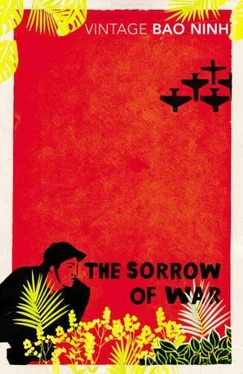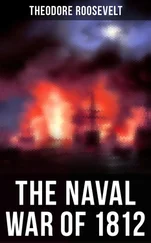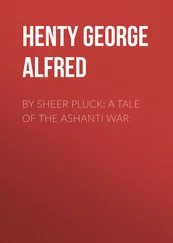A nameless song with a ghostly rhythm, simple and mysterious, that everyone had heard, yet each said they’d heard different versions. They said they listened to it every night and were finally able to follow the voice trail to where the singer was buried. They found a body wrapped in canvas in a shallow grave, its bones crumbled. Alongside the bones lay a hand-made guitar, intact.
True or not? Who’s to know. But the story went on to say that when the bones were lifted to be placed in a grave all those present heard the song again echoing through the forest. After the burial the song ended, and was never heard again.
The yarn became folklore. For every unknown soldier, for every collection of MIA remains, there was a story.
Kien recalled the Mo Rai valley by the Sa Thay river when his group found a half-buried coffin. It had popped up like a termite hill on a riverbank, so high even the floods hadn’t reached it. Inside the coffin was a thick plastic bag, similar to those the Americans used for their dead, but this one was clear plastic. The soldier seemed to be still breathing, as though in a deep sleep. He looked so alive. His handsome, youthful face had a serious air and his body appeared to be still warm, clothed in a uniform that was still in good condition.
Then before their eyes the plastic bag discoloured, whitening as though suddenly filled with smoke. The bag glowed and something seemed to escape from it, causing the bag to deflate. When the smoke cleared, only a yellowish ash remained.
Kien and his platoon were astounded and fell to their knees around it, raising their hands to heaven praying for safe flight for the departed soul. Overhead a flock of geese, flying solemnly and peacefully in formation, winged their way past.
‘If you can’t identify them by name we’ll be burdened by their deaths for the rest of our lives,’ the head of the MIA team had said. He had been an insurance clerk at one time. Now his entire life was gathering corpses. He was preoccupied with this sole duty which was to locate, identify, recover then bury the dead soldiers. He used to describe his work as though it were a sacred oath, and ask others to swear their dedication.
An oath was hardly necessary for Kien or the others in the MIA team. They’d emerged from the war full of respect and mourning for the unfortunate dead, named and nameless alike.
One of Kien’s scouts was Phan, a native of Hai Hung province. He told Kien this story: ‘I don’t know who he was because he was from the ARVN Special Commandos, on the other side. Anyway, during one fierce battle during the rainy season this guy’s company and mine became entangled in a very bloody fight. Rivers of blood; no winner, no loser, both battered. The Americans backed these ARVN units up with artillery from the top of a hill and when the artillery stopped the Phantoms came in and bombed us. I dropped into a bomb crater and escaped the big bombs. Then came the baby bombs, exploding non-stop.
‘I lay there not moving and then this guy jumped in on me, heavy as a log. I was so frightened I stabbed him twice in the chest through his camouflage uniform, then once more in the belly, then again in the neck. He cried in pain and writhed around convulsing, his eyes rolling. I realised then he’d already been badly wounded before jumping in. His own artillery had blown his foot off and he was bleeding all over, even from the mouth. His hands were trying to hold in his intestines, which were spilling out of his belly and steaming. I didn’t know what to do. He was so pitiful. I pushed his guts back into his belly and tore my shirt off to bandage him, but it was so hard to stop the bleeding.
‘If it had been anyone else, not someone so strong and healthy, he would have died right then. But this guy just moaned louder and louder, tears running down his cheeks. I was horrified and at the same time felt deep pity for him.
‘So when the raid stopped I jumped out of the crater telling him to stay there for a while. “I’m going to find some cloth and bandages,” I told him. “I’ll be back soon.”
‘He blinked at me, the rain pouring down his face, mixing water, tears and blood. Outside the crater the jungle was destroyed, with trees broken and the ground devastated. Troops from both sides had withdrawn so I searched for a while and found a bag with emergency medical equipment in it, then turned to go back to help him.
‘But I’d been silly. By then it was dark and I had no idea where the crater was. The trees around me had been broken off and branches scattered all around the place. The ground was pock-marked with hundreds of craters. Where was the one I’d been sharing with the Saigonese? Darkness fell, the heavy rain continued and the water flowed in small streams down the slopes. “Hey, Saigon, Saigon, hey!” I called, running around trying to find him. I fell into a crater. The water came over my knees. That meant that someone sitting inside a crater would now have water up to his chest.
‘The more I tried to find him the worse the situation became. All I did was exhaust myself. When dawn at last came and the rain eased you wouldn’t believe what I saw. Horrifying. All the bomb craters were filled to the rim with water.
‘I pushed off. I was going a little mad. I began to imagine his death; water slowly rising on him, a barbaric death stuck in the mud, helpless as the water came over his belly, his chest, his shoulders, his chin, his lips, then reached his nostrils… and he started to drown. He’d died still hoping desperately that I’d come back and save him, as I promised. In which crater had he died?
‘Now, even after many years, whenever I see a flood I feel a sharp pang in my heart and think of my cruel stupidity. No human being deserved the torture I left him to suffer.’
After many years of peace Phan was still tormented by the memory. Would the drowned man ever stop floating through his mind?
The sorrow of war inside a soldier’s heart was in a strange way similar to the sorrow of love. It was a kind of nostalgia, like the immense sadness of a world at dusk. It was a sadness, a missing, a pain which could send one soaring back into the past. The sorrow of the battlefield could not normally be pinpointed to one particular event, or even one person. If you focused on any one event it would soon become a tearing pain.
It was especially important, therefore, to avoid if possible focusing on the dead.
However, Kien would remember, until the last moments of his life, his first commander, Quang. In the dry season of 1966 during the Sa Thay campaign, Kien was a novice, fighting for the first time. For three days and nights fighting against the Air Cavalry Kien followed Quang closely. He was led, helped and in reality protected. Standing, lying down, rolling away, moving forward, running, Kien was linked with Quang. Then suddenly Quang had been chopped down, hit when the company was crossing a bamboo thicket near Hill 300 to get within range of the American troops who had dropped from helicopters.
Quang had been hit by a shell exploding right at his feet, blasting him into the air then plummeting him back to earth. Kien knelt clumsily beside his commander, but didn’t know how to help him. Quang’s belly was torn open, his intestines pouring out, but the frightening thing was that all his bones seemed to be smashed.
His two sides had been flattened somehow, and one arm had been torn from his shoulder. Amazingly, Quang was unconscious for only a brief time. Perhaps because he was in so much pain he regained consciousness quickly. He had been a fisherman in Mong Cai, was extremely strong and healthy, well-built and tough, as well as kind-hearted. He was usually brave and silent, but now he screamed: ‘Don’t touch me, don’t! Don’t bandage me any more, aaaahhhh!’
Читать дальше












